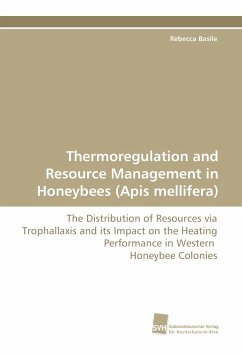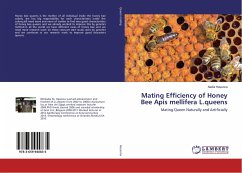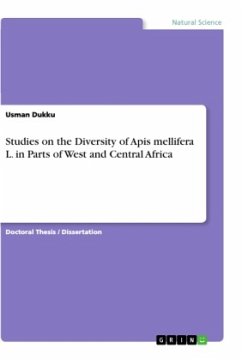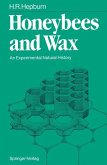The ecological success of social insects is largely based on the complex organization of their colonies. In a honeybee colony, the adjustment of labor is expected to be highly adaptive. Because biotic and abiotic factors like temperature, brood rearing conditions and nectar availability strongly fluctuate, the honey resources which are shared between all members are of crucial importance for the colony s survival. The questions posed are whether there is a performance-related reward system, what controls individual differences in performance, and how such systems might have evolved. This work focuses on the activity of the antennae at initiation of a feeding contact, impact of sugar and water content of food to the heating performance, behavioral differences between donors and recipients of a trophallactic contact, regulation of the trophallactic activity on the brood comb, and possible evolution of the performance related reward system which triggers the feeding and heating activity. The various methods used for fielding the questions in this thesis reach from classical behavioral ecology, behavioral physiology, neurobiology, and theoretical approaches.
Bitte wählen Sie Ihr Anliegen aus.
Rechnungen
Retourenschein anfordern
Bestellstatus
Storno








